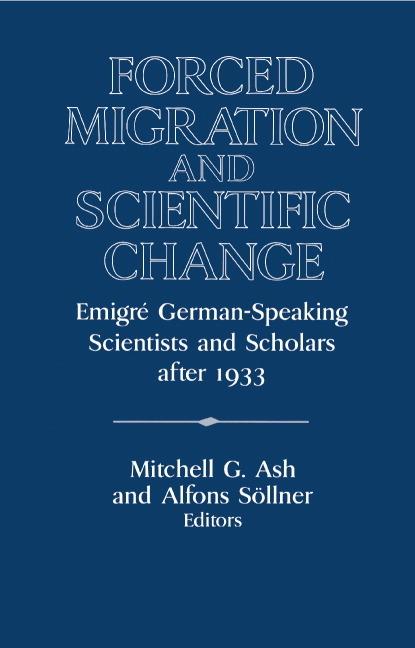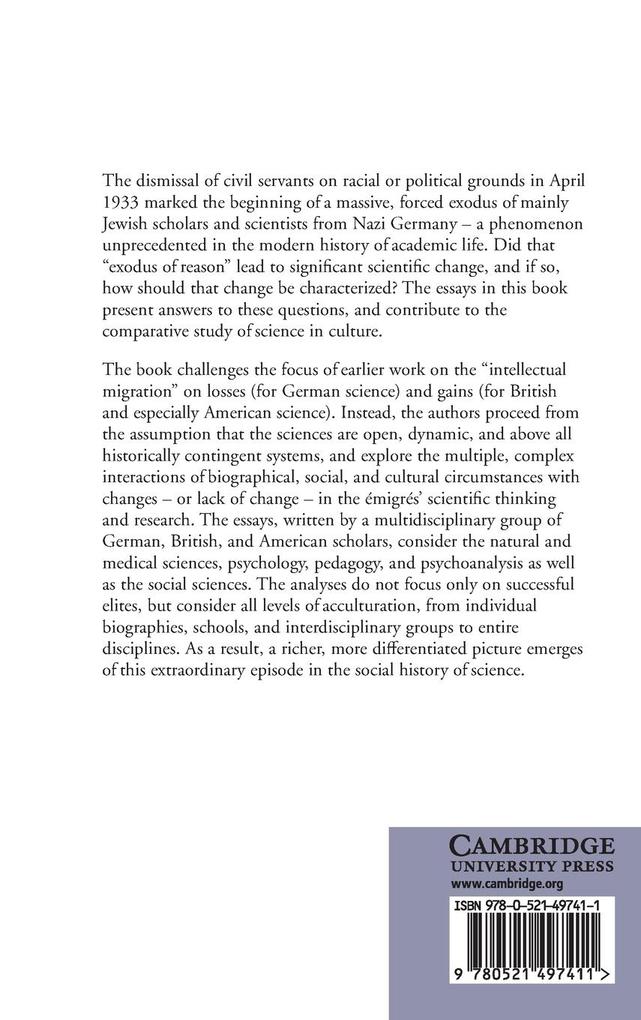
Zustellung: Mo, 14.07. - Do, 17.07.
Versand in 7 Tagen
VersandkostenfreiBestellen & in Filiale abholen:
The dismissal of civil servants on racial or political grounds in April 1933 marked the beginning of a massive, forced exodus of mainly Jewish scholars and scientists from Nazi Germany - a phenomenon unprecedented in the modern history of academic life. Did the "exodus of reason" lead to significant scientific change, and if so, how should that change be characterized? The essays in this book present answers to these questions, and contribute to the comparative study of science in culture.
Inhaltsverzeichnis
Introduction: forced migrations and scientific change after 1933 Mitchell G. Ash and Alfons Sö llner; Part I. Physical and Medical Sciences: 1. Identification of emigration-induced scientific change Klaus Fischer; 2. Physics, life, and contingency: Born, Schrö dinger, and Weyl in exile Skuli Sigurdsson; 3. Emigration from country and discipline: the journey of a German physicist into American photosynthesis research Alan D. Beyerchen; 4. The impact of German medical scientists on British medicine: a case study of Oxford, 1933-45 Paul Weindling; Part II. Psychology, Psychoanalysis, Pedagogy: 5. Emigré psychologists after 1933: the cultural coding of scientific and professional practices Mitchell G. Ash; 6. Psychoanalytic science: from Oedipus to culture Edith Kurzweil; 7. The impact of emigration on German pedagogy Heinz-Elmar Tenorth and Klaus Horn; Part III. Social Sciences: 8. Dismissal and emigration of German-speaking economists after 1933 Claus-Dieter Krohn; 9. Emigration of social scientists' schools from Austria Christian Fleck; 10. The Vienna Circle in the United States and empirical research methods in sociology Jennifer Platt and Paul K. Hoch; 11. From public law to political science? The emigration of German scholars after 1933 and their influence on the transformation of a discipline Alfons Sö llner; Epilogue: the refugee scholar in America: the case of Paul Tillich Karen J. Greenberg.
Produktdetails
Erscheinungsdatum
18. April 1996
Sprache
englisch
Seitenanzahl
320
Herausgegeben von
Mitchell G. Ash, Alfons Söllner
Verlag/Hersteller
Produktart
gebunden
Gewicht
616 g
Größe (L/B/H)
235/157/22 mm
ISBN
9780521497411
Entdecken Sie mehr
Bewertungen
0 Bewertungen
Es wurden noch keine Bewertungen abgegeben. Schreiben Sie die erste Bewertung zu "Forced Migration and Scientific Change" und helfen Sie damit anderen bei der Kaufentscheidung.










